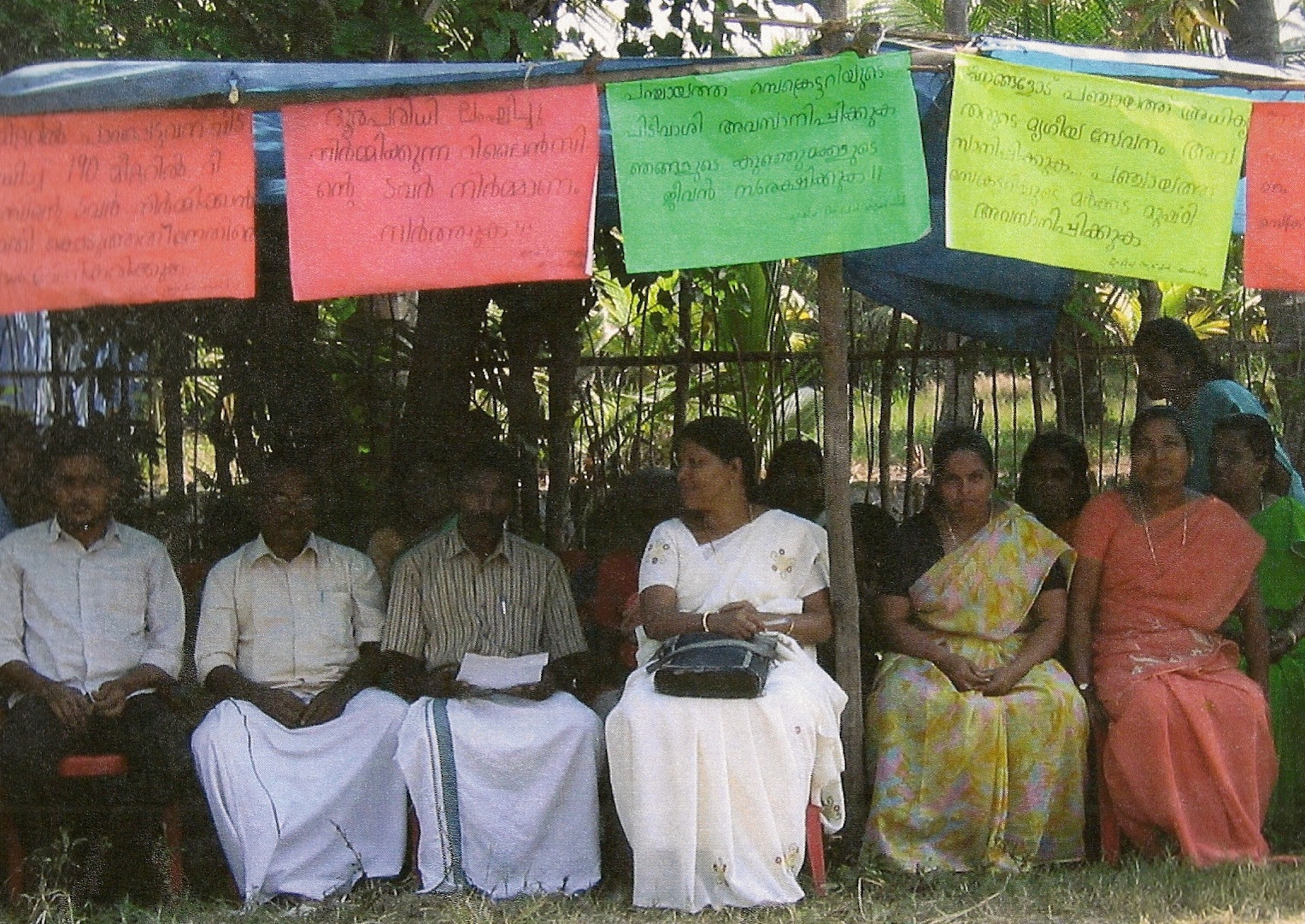
August 15th is Independence Day in India, a national holiday. This year, 2011, marked the 64th anniversary of the termination of British authority and the beginning of self-government for that country. The Indian Independence Act, which provided for Partition of India and Pakistan, was signed in August of 1947, with India and Pakistan becoming two independent nations following the transfer of power from Britain.
Mahatma Gandhi was instrumental in helping India achieve its independence. Among other notable individuals, he helped to steer the country toward what was seen as its necessary development into a sovereign nation, freed from the demoralizing rule of its long-time colonial master.
Gandhi was an activist. Throughout his life he campaigned for civil rights, improved labour laws, and equal justice for Indians. He famously used non-violent civil disobedience as a means of advocacy, public engagement, and achieving reform.
Currently, in New Delhi, 74 year-old Indian activist Anna Hazare is fasting to publicly protest against rampant corruption in India. His long-standing campaign to have government pass legislation that would create an ombudsman with sweeping powers to probe corruption at all levels, has led to widespread public support and demonstrations all over India.
Like Gandhi, Hazare wants to make change happen; he wants people to be witness to his actions, so that they can be inspired to demand an end to the endemic bribery and misuse of public funds that stand in the way of equal rights and opportunities in democratic India.
Much public funding is earmarked for local village-level projects and programs in rural India. C. Griffin’s blog of July 12th addresses the issue of corruption and discusses Save A Family Plan’s role in promoting good governance. Properly informed, local citizens can be empowered to demand transparency and accountability from their local governing bodies. They, too, can be models for peaceful action and inspire positive change in their communities.
India was the British Empire’s “jewel in the Crown”. The journey to independence was fraught with incredible challenges that continue to trouble the two nations that emerged in 1947. That India today is world’s largest democracy, fourth largest economy, and a global leader in science and technology, is proof that this country has the resources and ingenuity to overcome a difficult past and achieve greatness.
However, the greatest challenge remains the inequity—the huge numbers of impoverished, marginalized, and oppressed citizens who have yet to experience the benefits of an independent, democratic India. It is these people for whom Gandhi acted—for whom others now act in defence of justice and equality.
Jean Vanier, humanitarian and founder of L’Arche (worldwide network of homes shared by those with developmental disabilities and those who assist them), is an admirer of Gandhi, whom he calls “a defender of the poorest and the weakest…a man with a vision of liberation through love, wisdom, and non-violence.” According to Vanier, non-violence is, “…an attitude where we do not hate or want to use violence, but where we want the oppressor to change and to grow in justice and truth.” (Jean Vanier Essential Writings, Whitney-Brown, 2008)
Independent India and Pakistan did not arise without violence; sadly, Gandhi’s attitude was not shared by all. However, his legacy continues to inspire individuals and organizations in India, and worldwide, who work in peace to ensure a dignified, secure, and healthy life for all.
L.L. Chan

